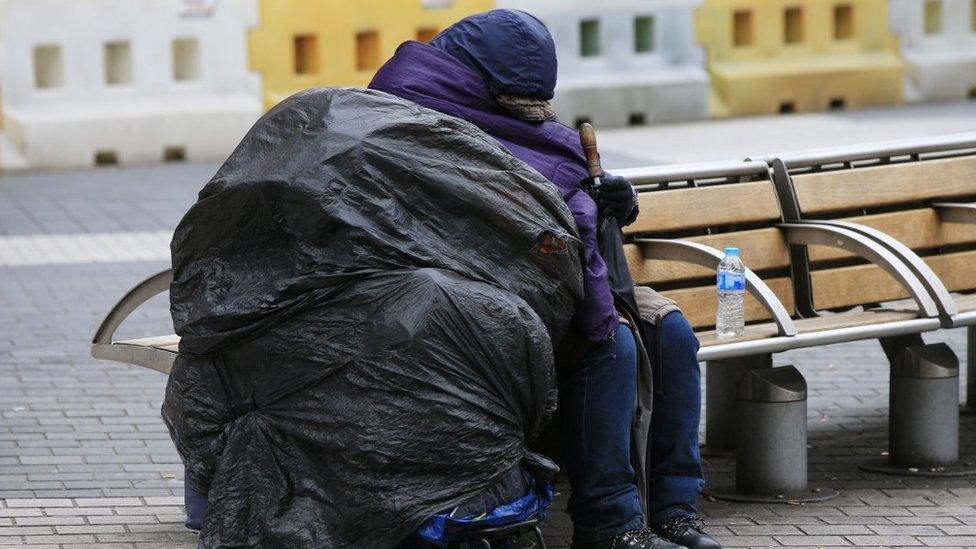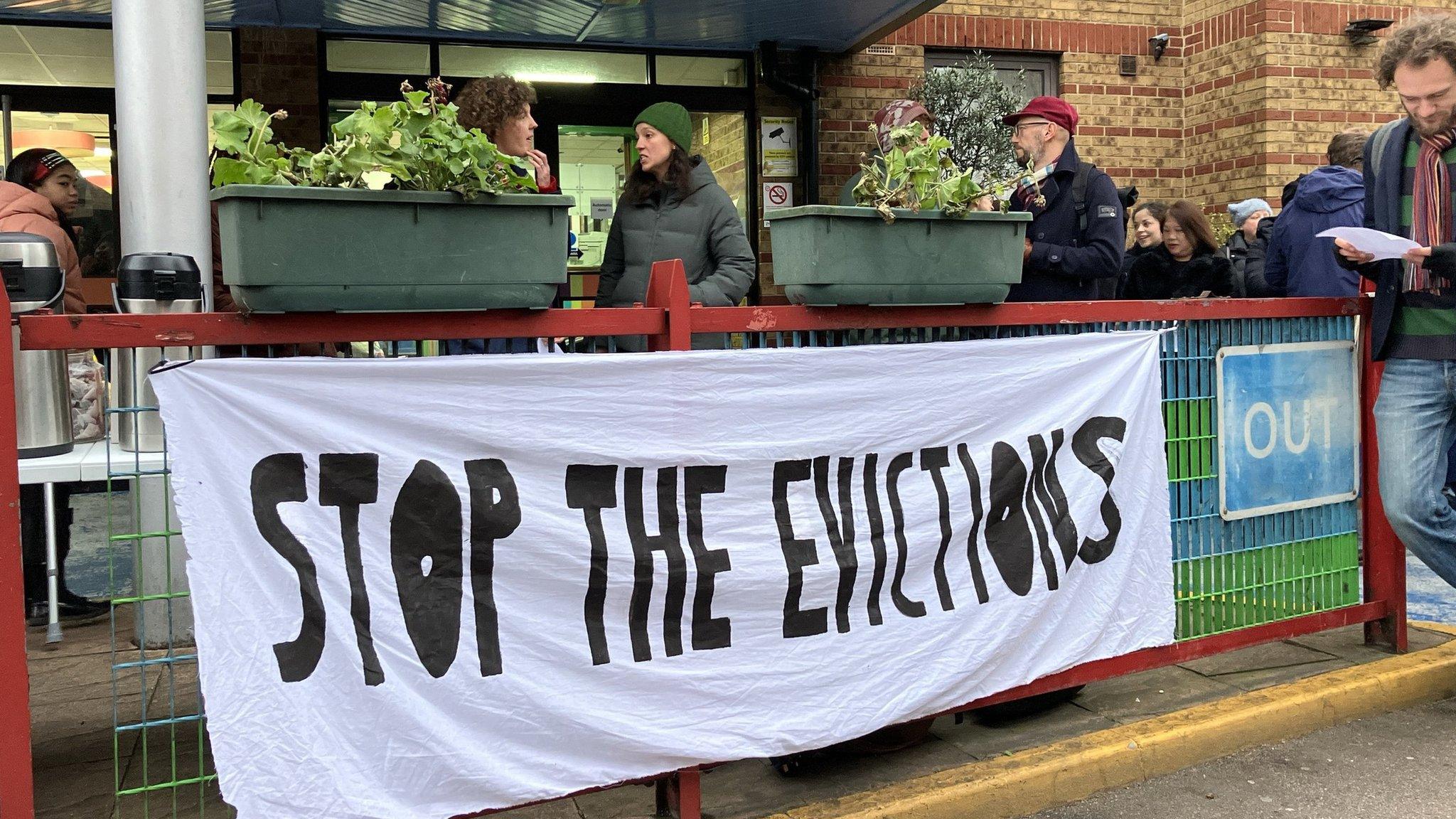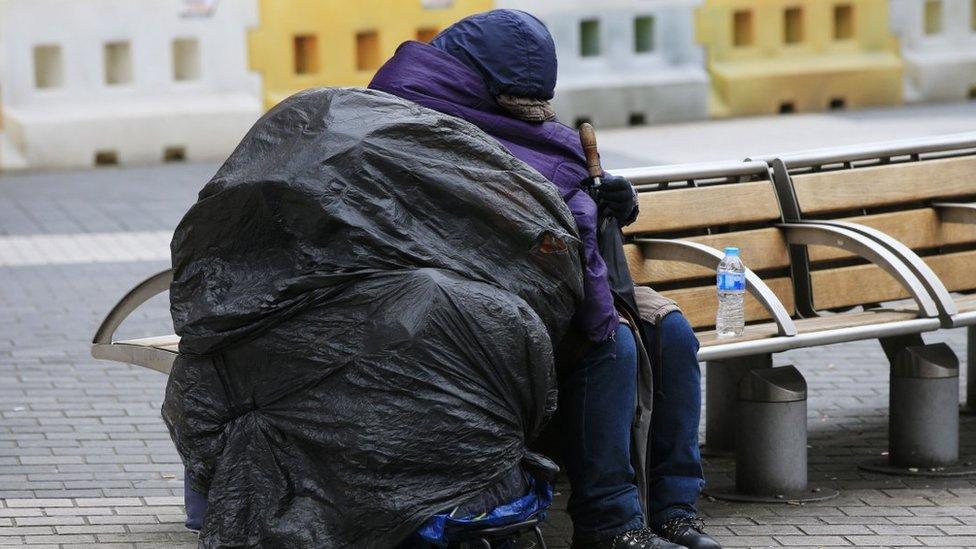London Councils: Spike in refugees rough sleeping during cold snap
- Published

London Councils said 311 refugees had to sleep rough in January after being required to leave National Asylum Support Service accommodation
Hundreds of refugees faced having to sleep rough in London during a cold snap after being evicted from Home Office accommodation, figures show.
London Councils said 311 refugees had to sleep rough in January after being required to leave National Asylum Support Service (NASS) accommodation as their claims had been closed.
The number was up from 93 refugees in the same position in September.
The Home Office said it was working with authorities to improve the system.
London Councils said a total of 1,087 refugees asked homelessness services in the capital for help in January following Home Office evictions, an increase of 78% since September.
The group, which represents 33 local authorities in the capital, said 242 evicted refugees were among 1,284 rough sleepers given emergency placements when London's mayor Sadiq Khan activated an extreme weather protocol on 8 January.
Emergency accommodation is opened up when temperatures dip below freezing.
Refugees are required to leave NASS accommodation within 28 days of their asylum claims having been processed.
The January survey found that more than 90% of refugees living on the streets had received a positive decision on their asylum claim, which could include being granted protection, resettlement or an alternative form of leave in the UK.
Grace Williams, Labour leader of Waltham Forest Council and London Councils' lead for asylum and refugees, described the spike in refugees rough sleeping as "deeply alarming".
A Home Office spokesperson said: "Once a newly recognised refugee is issued a biometric residence permit, they get 28 days to move on from asylum accommodation.
"Support is also available through Migrant Help and their partners, which includes advice on how to access universal credit, the labour market and where to get assistance with housing.
"We are working with local authorities to manage the impact as we reduce the number of asylum-seekers awaiting a decision."

Listen to the best of BBC Radio London on Sounds and follow BBC London on Facebook, external, X, external and Instagram, external. Send your story ideas to hello.bbclondon@bbc.co.uk, external
Related topics
- Published25 January 2024

- Published5 January 2024
